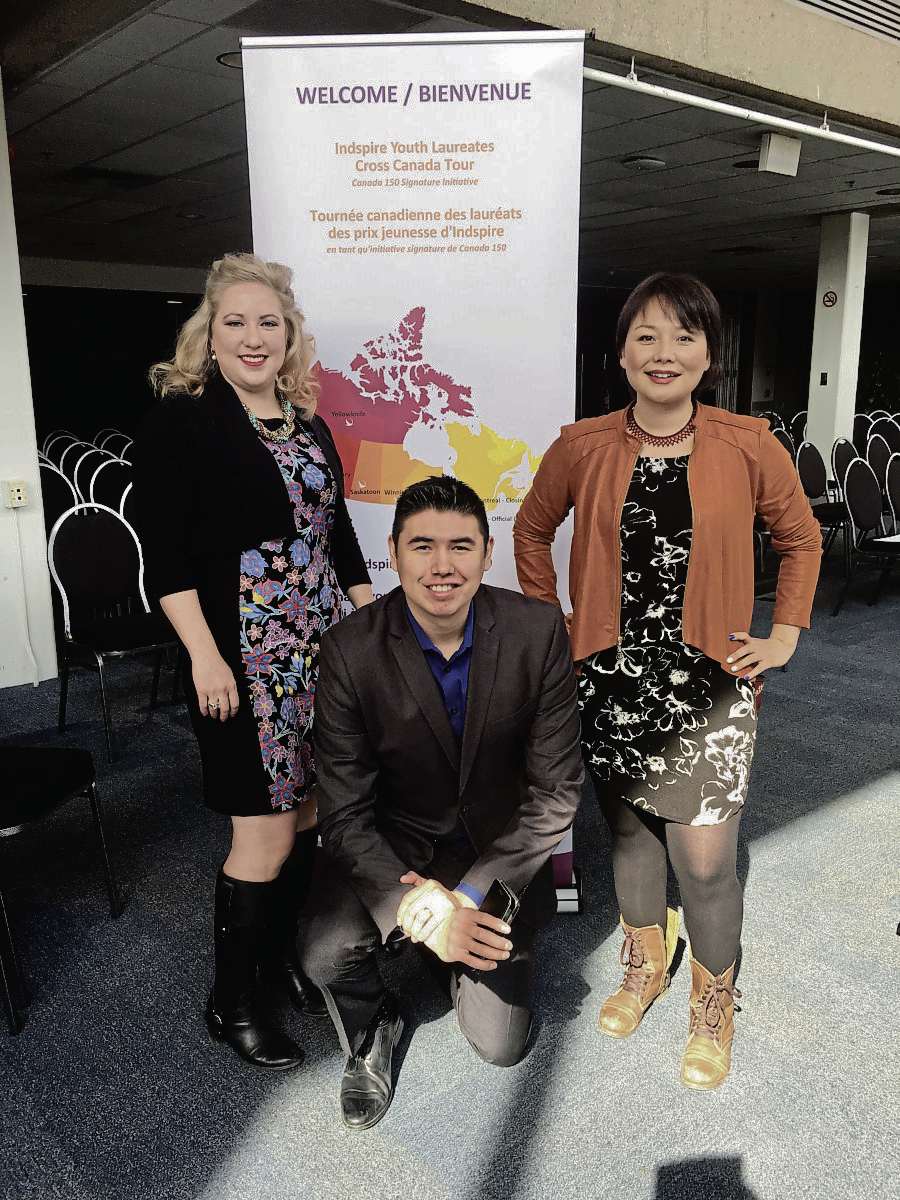Inspiring Indigenous students
Charity has supported many Indigenous students’s academic career
Advertisement
Hey there, time traveller!
This article was published 05/05/2017 (3085 days ago), so information in it may no longer be current.
In celebration of Canada 150, Indigenous university graduates are talking about the importance of post-secondary education within Indigenous students.

Indspire, an Indigenous-led registered charity, was selected to receive the federal government’s Canada 150 Fund and will be showcasing Indspire Youth Laureate Cross Canada Tour with panel discussions in seven cities around the country. Indspire is one of the largest funders of Indigenous post-secondary education outside of the federal government. Its main mission is to encourage Indigenous graduation from college and university and promote Indigenous education.
Garden City resident Fauna Kingdon, 32, has seen the impacts of Indspire in her life. She was named Youth Laureate in 2005, but her involvement with the charity goes far beyond that. Indspire has supported her throughout her entire academic career. When she was in Grade 12, Kingdon received the Indspire bursary to attend a post-secondary institution. She did her honour bachelors commerce degree at the University of Manitoba’s Asper School of Business and later received a scholarship to do her master’s in professional accounting at the University of Saskatchewan.
“I think any organization can give students money,” Kingdon, who was raised in Nunavut, said. “But (Indspire) is about building relationships…It is about fostering relationships. They care about how their recipients do, and they are really good at making sure that they follow up and provide the resources for students.”
Kingdon, who also sits on Indspire’s board of directors, spoke about her journey, challenges and obstacles as an Indigenous student at the one of the Youth Laureate Cross Canada Tour’s meeting held at the University of Manitoba on April 27.
“Indspire is more in line with my general focus and passion, and that’s encouraging Indigenous young people to pursue education and set goals and accomplish them,” Kingdon explained. “There’s an underrepresentation of Indigenous professionals all across Canada. I think we are now at a place where we have access to resources, and it’s just a matter of encouraging people to take that initiative and create that change.”
Anne Marie Gabriel, Indspire communications and marketing vice-president, said the Indigenous population under the age of 25 is the largest growing population in Canada. Although this is not a well-known fact, she said the charity works to support these future Indigenous leaders as they move forward.
“Education plays a very important part in providing leadership skills for the future, and also if we tie in the long term benefits of reconciliation, Senator Murray Sinclair said education got Canada into this mess, and it is the power of education that will get us out of it. So we are following that lead,” she continued.
High school graduation rates among Indigenous students continue to be lower compared to non-Indigenous students. A report released in 2014 by the C.D. Howe Institute suggests that only four out of 10 high school students living on reserves finish high school. Kingdon said there’s a misconception that all Indigenous students have access to post-secondary education. Indspire comes into play to target groups that otherwise wouldn’t qualify for the federal or provincial government funding.
To learn more about Indspire or make a donation, go to indspire.ca




